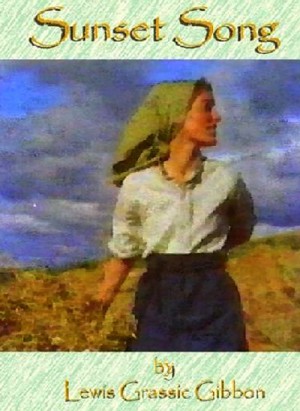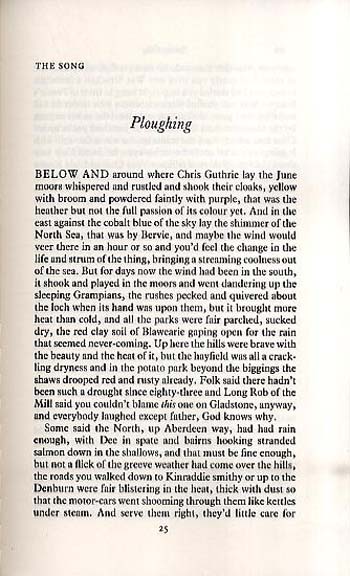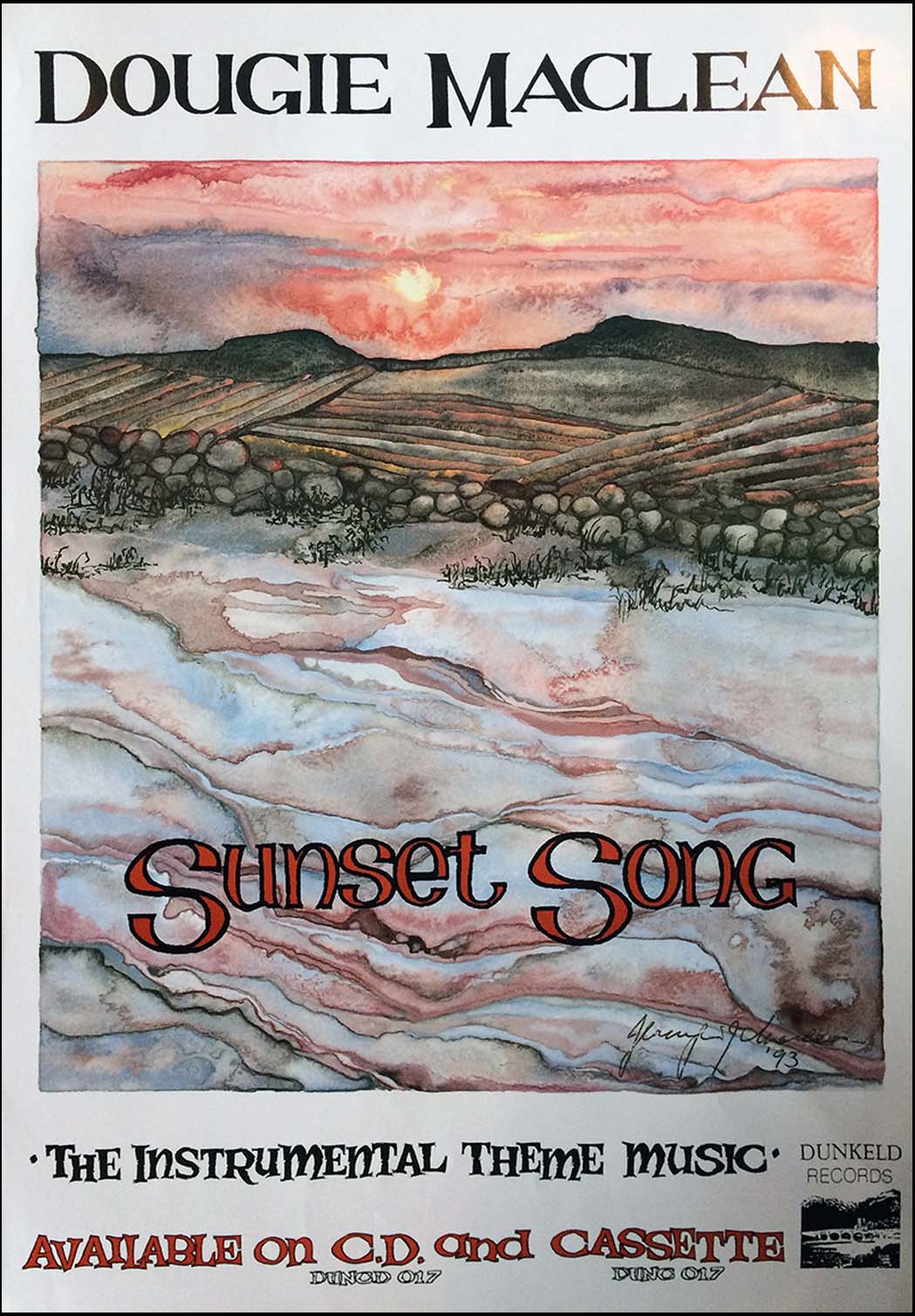

It was in print, because it's always been current in Scotland in south-west England I had it all to myself. When the series finished I was so bereft that I had to go in search of the book, and when I couldn't find it anywhere, I ordered it from our local bookshop. I watched the final episode weeping uncontrollably, not able to move to fetch a tissue to mop up my face in case I missed one word, one move. I found it accidentally no one I knew had ever heard of Lewis Grassic Gibbon. Sunset Song first captured me as a BBC television series, in the early 1970s. Is it true that once you've left your youth behind you never do quite that kind of reading again: not only entering wholeheartedly into a book, but actually changing your own shape, the way you imagine yourself, in response to how the book involves and delights you? I'm not sure that it ever stops altogether, but you do become more realistic about your own qualities. My mother was grateful but knew it wouldn't last. For a while I started getting up absurdly early in the morning (horrible - I'm naturally a late riser), baking and cleaning enthusiastically.

When I read Lewis Grassic Gibbon's Sunset Song in my mid-teens I entered into it with such wholehearted love that I longed to live inside it I made a huge effort to will its life of ploughing and planting and passion inside mine, as a middle-class schoolgirl in a big city. Or that you might be suited to the hard life of a crofter in the Mearns, Kincardineshire in eastern Scotland, at the turn of the 20th century. But you aren't clear about any of that yet - you really think you might turn out to be Anna Karenina or Isabel Archer.

A dispassionate observer could probably let you know some of the ingredients you're going to have to work with - perhaps bookish, awkward, indolent, clever, odd-looking. When you're 14 or 15 you really don't know what you're going to be like when you grow up.


 0 kommentar(er)
0 kommentar(er)
